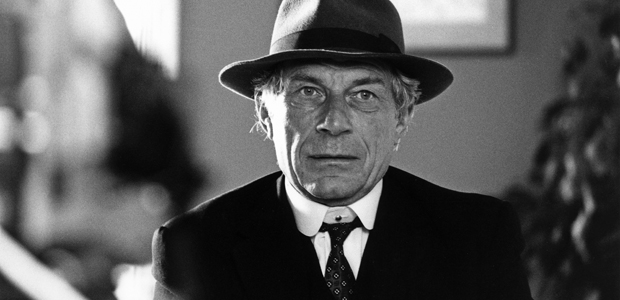
In 1967, while working with the Swiss photographer Jean Mohr on A Fortunate Man, a book about a country GP serving a deprived community in the Forest of Dean, Gloucestershire, John Berger began to reconsider what the role of a writer should be. “He does more than treat [his patients] when they are ill,” Berger wrote of John Sassall, a man whose proximity to suffering and poverty deeply affected him (he later committed suicide). The rural doctor assumes a democratic function, in Berger’s eyes, one he describes in consciously literary terms. “He is the objective witness of their lives,” he says. “The clerk of their records.”
The next five years marked a transition in Berger’s life. By 1972, when the groundbreaking art series Ways of Seeing aired on BBC television, Berger had been living on the Continent for over a decade. He won the Booker Prize for his novel G. the same year, announcing to an astonished audience at the black-tie ceremony in London that he would divide his prize money between the Black Panther Party (he denounced Booker McConnell’s historic links with plantations and indentured labour in the Caribbean) and the funding of his next project with Mohr, A Seventh Man, recording the experiences of migrant workers across Europe.
This is the point at which, for some in England, Berger became a more distant figure. He moved from Switzerland to a remote village in the French Alps two years later. “He thinks and feels what the community incoherently knows,” Berger wrote of Sassall, the “fortunate man”. After time spent working on A Seventh Man, those words were just as applicable to the writer himself. It was Berger who had become a “clerk”, collecting stories from the voiceless and dispossessed – peasants, migrants, even animals – a self-effacing role he would continue to occupy for the next 43 years.
The life and work of John Berger represents a challenge. How best to describe the output of a writer whose bibliography, according to Wikipedia, contains ten “novels”, four “plays”, three collections of “poetry” and 33 books labelled “other”?
“A kind of vicarious autobiography and a history of our time as refracted through the prism of art,” is how the writer Geoff Dyer introduced a selection of Berger’s non-fiction in 2001, though the category doesn’t quite fit. “To separate fact and imagination, event and feeling, protagonist and narrator, is to stay on dry land and never put to sea,” Berger wrote in 1991 in a manifesto (of sorts) inspired by James Joyce’s Ulysses, a book he first read, in French, at the age of 14.
Berger’s influence in the literary and wider artistic worlds is a little easier to measure. “He is the lodestar of the contemporary literary experience,” the Irish novelist Colum McCann tells me. “I cannot imagine my bookshelves without him. The other writers would collapse.” Susan Sontag described him as “peerless” for his ability to merge “attentiveness to the sensual world” with “the imperatives of conscience”, though Berger himself prefers to be described, simply, as “a storyteller”. Social and political commentary, subjective response and aesthetic theory are the basic elements of much of what he writes – but it all begins with seeing.
When I arrive, wet, to meet Berger at a house in Paris one recent gloomy morning, he looks concerned. “You’re cold!” he says, urging me to sit down by the radiator while he disappears into the kitchen to make coffee.
(…)

